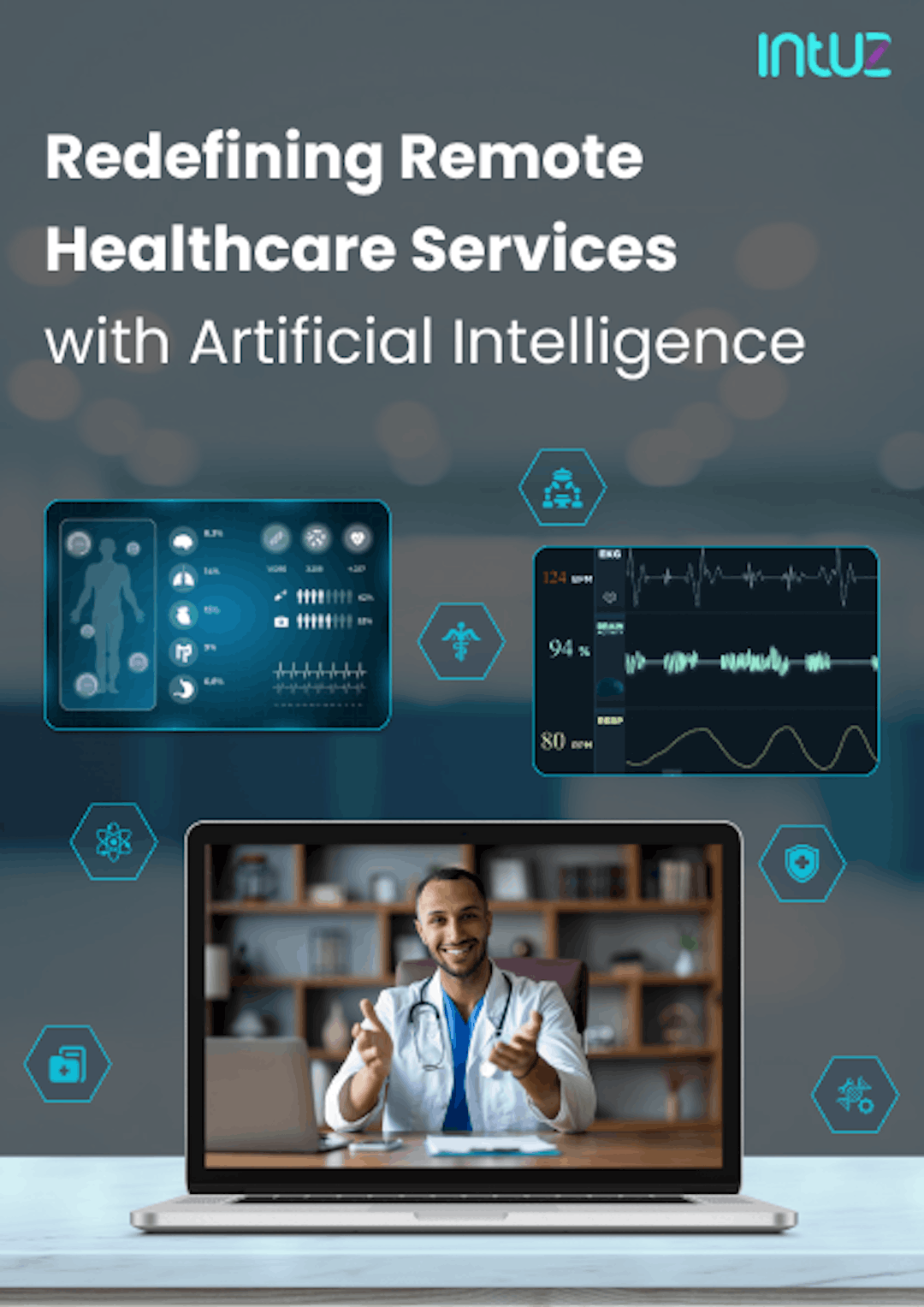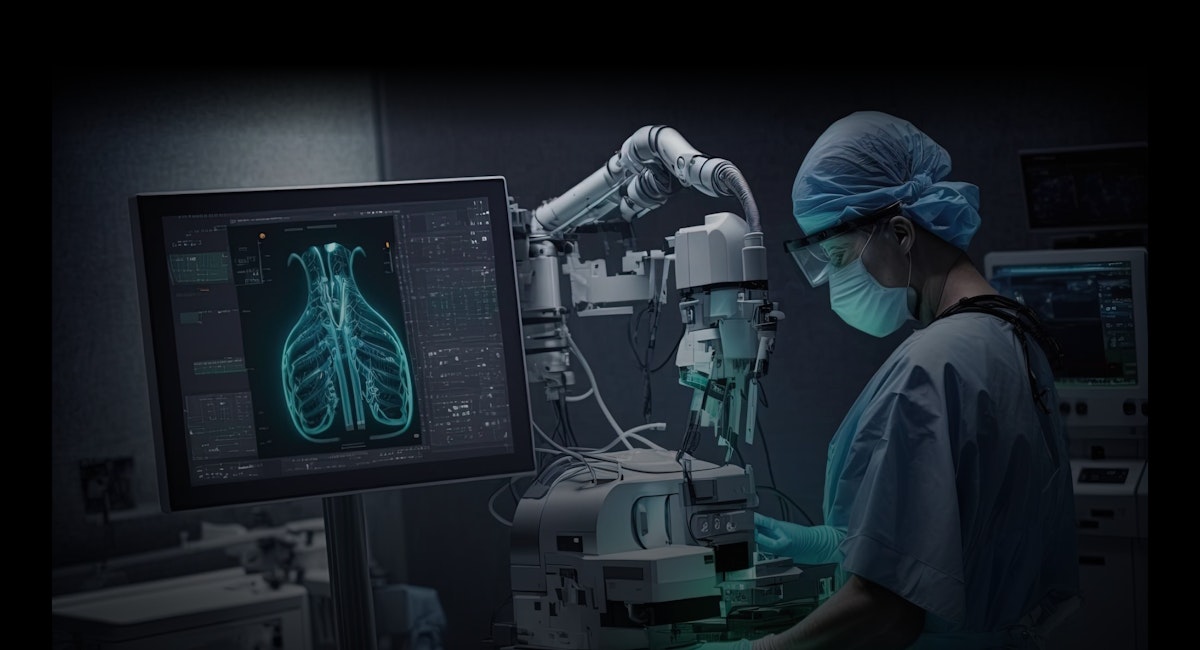Table of Content
People are innately different. This is not just a philosophical statement but has its roots in biological aspects. We differ in our genetics, physiology, lifestyle, and the environment we reside or grow up. With such intricate factors affecting our health and bodily compositions, it’s limiting that there are in practice conventional one-size-fits-all approaches to treating ailments and diseases.
Conventional approaches such as allopathy often overlook these individual differences, leading to a lack of bespoke treatments that effectively assist in recovery. Such practices also pose risks of over and under-medication, adverse side effects, or poor patient outcomes.
The answer to such plaguing concerns is the incorporation of niche emerging technologies, specifically, Generative AI.
Key takeaways
Generative AI can synthesize new drug molecules and compounds, potentially leading to groundbreaking treatments for incurable diseases.
It enables predictive analysis of how certain compounds react in humans, deepening our understanding of side effects and optimizing drug efficacy.
Generative AI can facilitate the discovery of new drugs, reducing the expenses incurred in drug discovery by up to 70%.
It can create personalized treatment plans by analyzing patient data, genetic information, medical histories, and lifestyle factors, improving treatment outcomes and quality of life.
Generative AI can enhance and reconstruct medical images from MRI and CT scans, improving clarity and precision for effective diagnoses.
It can assist in early disease detection by analyzing medical images, electronic health records, and other data sources, enabling crucial early interventions.
Generative AI can model and simulate disease progressions, helping researchers understand disease mechanisms, identify potential drug targets, and formulate personalized therapeutic interventions.
It can optimize clinical trial design by identifying suitable patient populations, predicting dropout rates, and suggesting optimal trial protocols based on simulations and synthetic data, leading to faster approval of effective treatments.
The role of Generative AI in precision medicine
The application of Generative AI in the field of healthcare is an innovative technology and brings in a new wave of change in how diseases are diagnosed, clinical trials are conducted, and patient care is optimized.
A super-niche subset of artificial intelligence, Gen AI empowers heavy-duty models and machine learning algorithms to synthesize, generate, curate, or predict data and insights based on specific purposes and instructions.
To give you a quick idea of how Generative AI impacts, precision medicine, here are some pointers:
- Synthesis of new drug molecules and ultimately new compounds that could prove groundbreaking in treating and curing incurable diseases
- Healthcare AI predictive analytics of how certain compounds react on humans would deepen understanding of side effects and optimize drug efficacy
- Enable understanding of protein structures, enabling us to understand disease mechanisms better
- Precision diagnosis of diseases and formulation of personalized treatment plans based on individual’s personal health history, allergies, age, and more
- Generation of synthetic data to conduct clinical trials and train other healthcare-specific training models in areas where training data are scarcely available and more
Benefits of Generative AI in personalized medicine
Generative AI offers numerous benefits in personalized medicine, including creating tailored treatment plans, early disease detection, accelerating drug discovery, optimizing clinical trials, and enhancing medical image analysis. By analyzing vast amounts of patient data, such as genetic information, medical histories, and lifestyle factors, it ultimately improves patient outcomes.
1. Accelerating new drug discovery using Generative AI
Gen AI can supercharge the process of discovering new drugs for diseases that are both common and rare. Complex models can be leveraged to develop drug compounds with specific compositions and properties that can be tailored for optimum efficacies for individual health conditions, safety profiles, and more.
The development of drugs to battle cancers and viruses can be fast-tracked with improved clinical trials, protocols, and simulations of outcomes.
An interesting report from Insider Intelligence shares that the expenses incurred in discovering new drugs can be reduced by up to 70%.
Real-world case study - Insilico Medicine
Insilico Medicine grabbed the spotlight by deploying Generative AI to discover a new drug and pave the way for phase II trials. Using a chemistry-based Gen AI engine called Chemistry42, it discovered lead-like structures. This breakthrough involved scientists selecting 79 molecules to synthesize. When the 55th molecule showed promise of improving fibrosis with ideal safety profiles in mouse models, it earned the Orphan Drug Designation from a regulatory body.
2. Personalized treatment plans for individual patients
Generative AI can revolutionize personalized medicine by collecting patient data from medical devices and analyzing data, including genetic information, medical histories, and lifestyle factors, to create highly tailored treatment plans. For instance, an AI system could generate a customized immunotherapy regimen for a cancer patient based on their tumor's unique genetic mutations and immune profile, maximizing efficacy while minimizing side effects. This level of personalization makes informed decisions and significantly improves treatment outcomes and quality of life for patients.
Real-world case study - Watson for Oncology
Memorial Sloan Kettering Cancer Center (MSKCC) has developed an AI system called "Watson for Oncology" in collaboration with IBM Watson Health. This system analyzes a patient's medical records, genomic data, and treatment history to generate personalized treatment recommendations for cancer patients. In a study involving over 1,000 breast cancer cases, Watson's recommendations matched those of MSKCC's multidisciplinary tumor board in 93% of cases, demonstrating its potential for delivering highly cancer personalized care.
3. Enhancing medical imaging for accurate diagnosis
Generative AI finds applications in optimizing the efficiency of clinical equipment as well. With the help of General Adversarial Networks (GANs), radiologists and practitioners can enhance and reconstruct medical images from MRI and CT scans for improved clarity and precision. By reducing noise and amplifying resolutions, effective diagnoses and treatment plans can be formulated.
Real-world case study - Lunit Insight MMG
Lunit Insight MMG is AI-driven software that helps radiologists accurately assess mammograms. Deep learning models allow the software to identify and locate suspicious lesions and differentiate potential tumor areas. The model is reported to have shown 96% accuracy in detecting breast cancer from mammogram reports and increased the speed of triage.
4. Early disease detection before they progress
By leveraging generative AI to analyze medical images, electronic health records, and other data sources, healthcare professionals can detect early signs of diseases before symptoms become apparent. This could lead to crucial early interventions and significantly better health outcomes. For example, an AI health system trained on retinal scans could identify subtle vascular changes indicative of diabetic retinopathy, enabling early diagnosis and treatment to prevent vision loss.
Real-world case study - Google Health
Google Health has developed an AI healthcare system that can detect breast cancer from mammograms more accurately than human radiologists. The system was trained on a dataset of over 90,000 mammograms from over 15,000 women in the U.S. and U.K. In a study published in Nature, the AI system outperformed six human radiologists in accurately identifying breast cancer cases, showcasing its potential for early disease detection.
5. Gaining deeper disease insights through AI-powered modeling and simulation
The recent devastation we collectively faced as humankind showed us the mutational capabilities of viruses. Their rapid evolution into something more minute and intelligently challenged druggists and experts in developing antidotes.
With Gen AI, the possibilities to study disease progressions are increased, as models can effectively simulate and study disease behaviors and pathophysiology. Harnessing the power of such models allows researchers to:
- To better understand diseases and their mechanisms
- Identify potential drug targets
- Formulate personalized therapeutic interventions and more
Real-world case study - COVID-19 Pandemic
In the COVID-19 pandemic, public health officials and researchers put the potential of Generative AI to incredible use by utilizing mathematical and computational models to comprehend disease dynamics. This marked a breakthrough in several aspects, such as:
- Simulating the spread of the virus within specific populations
- Predicting possible pandemic trajectory by analyzing incubation periods, transmission rates, and prevailing intervention measures
- Identifying high-risk areas with the help of geospatial modeling
- Facilitating vaccine rollout strategies by simulating herd immunity mitigating contagion and more
6. Enhanced patient outcomes through personalized care
By integrating diverse vast quantity data sources, including historical patient data, genetic information, medical records, real-world evidence, and clinical trial data, generative AI can provide more accurate diagnoses, predict disease progression, and recommend optimal treatment strategies tailored to each patient's unique circumstances. This level of personalization and predictive power can significantly improve patient outcomes across various medical conditions, leading to better quality of life and reduced healthcare costs.
Real-world case study - DeepCare
Researchers at the University of California, San Francisco (UCSF) have developed an AI system called "DeepCare" that integrates electronic health records, genomic data, and medical literature to predict patient outcomes and recommend personalized treatment strategies. In a study involving over 100,000 patients, DeepCare outperformed traditional risk prediction models and identified novel risk factors for various medical conditions, showcasing the potential for improving patient outcomes.
7. Repurposing existing drugs faster
Developing a second life for existing drugs has been a conventional practice. For instance, aspirin, originally developed as a pain-relieving anti-inflammatory medicine, was also researched and repurposed for its antiplatelet effects. This pivot allows for its use in preventing heart attacks and strokes.
With the incorporation of Gen AI, massive volumes of biomedical data can be analyzed and processed to detect new therapeutic use cases for existing drugs. Such simulations can offer eye-opening insights into treating several rare diseases by predicting and mapping drug-disease associations.
Real-world case study - BenevolentAI
Polypharmacology, or the capability to impact diverse targets about one or more conditions, can be fast-tracked with Graph Neural Networks (GNNs). During the recent COVID-19 pandemic, BenevolentAI leveraged proprietary AI algorithms and knowledge graphs to establish connections among existing drugs in treating COVID-19.
In less than 48 hours, experts detected a promising candidate in baricitinib, a medication conventionally used to treat rheumatoid arthritis. Through validation from global clinical trials, the FDA approved its use to treat adults suffering from the virus.
8. Streamlining clinical trials for faster drug development
Generative AI Tools can optimize clinical trial design by identifying suitable patient populations, predicting dropout rates, and suggesting optimal trial protocols based on simulations and synthetic data. This can improve the efficiency, success rates, and ethical conduct of clinical trials, ultimately leading to faster approval of effective treatments. For instance, an AI system could generate synthetic patient data to simulate various trial scenarios, identifying potential biases or ethical concerns before the trial begins.
Real-world case study - AI for Clinical Trials
Novartis has partnered with Microsoft to develop an AI system called "AI for Clinical Trials" that optimizes clinical trial design and patient recruitment. The system analyzes historical trial data, real-world evidence, and patient data to identify suitable patient populations, predict dropout rates, and suggest optimal trial protocols. In a pilot study, the AI system helped Novartis reduce patient screening costs by up to 25% and improve patient retention rates.
Future implications of Generative AI in precision medicine
We have barely scratched the surface when it comes to the deployment of Generative AI in a healthcare environment, specifically precision healthcare. The models are evolving at this very moment, and newer use cases are being uncovered for models to revolutionize the world of pharma and the landscape of healthcare.
This is evident in research in:
- Personalized design of drugs tailored to individual patients based on their disease characteristics, genetic profiles, treatment responses, and more
- Precision oncology, where Gen AI models can analyze genomic, transcriptomic, and proteomic data extracted from cancer patients and simulate precision treatment methodologies, targeted therapies, and drug resistance mechanisms
- Virtual clinical trials enable testing in confined virtual spaces to simulate and analyze drug safety, efficacy, patient responses and reactions, and more
There are diverse organizations and startups involved in committing their purposes to developing next-generation breakthroughs in the healthcare industry to ensure the world witnesses less suffering.
Are you a healthcare provider or researcher looking to leverage Generative AI for precision medicine?
Book a Free 45-minute Consultation with Our AI Specialists Today!
During this personalized consultation, our team will:
Assess your specific medical and research needs for AI
Recommend the most effective generative AI models and tools
Outline a comprehensive roadmap for integrating AI into your precision medicine initiatives
Discuss data management, analytics, and implementation strategies






